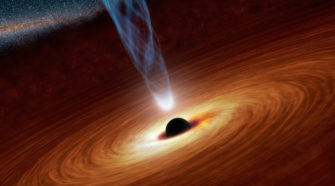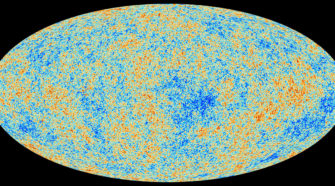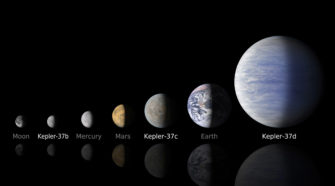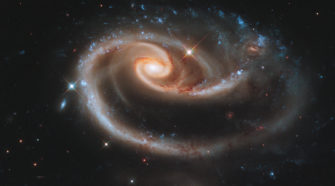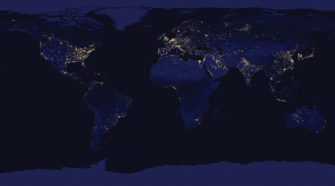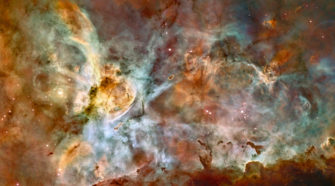Universe
NASA’s NuSTAR helps solve riddle of black hole spin
Two X-ray space observatories, NASA’s Nuclear Spectroscopic Telescope Array (NuSTAR) and the European Space Agency’s XMM-Newton, have teamed up to measure definitively, for the first time, the spin rate of a black hole with a mass two million times that of our Sun. The supermassive black hole lies at the dust- and gas-filled heart of …
Planck mission brings universe into sharp focus
The European Space Agency’s Planck space mission has released the most accurate and detailed map ever made of the oldest light in the universe, revealing new information about its age, contents and origins. The map results suggest the universe is expanding more slowly than scientists thought, and is 13.8 billion years old, 100 million years …
Kepler discovers smallest planet yet
NASA’s Kepler mission scientists have discovered a new planetary system that is home to the smallest planet yet found around a star similar to our sun. The planets are located in a system called Kepler-37, about 210 light-years from Earth in the constellation Lyra. The smallest planet, Kepler-37b, is slightly larger than our moon, measuring …
Hubble images a ‘Rose of Galaxies’
In celebration of the anniversary of the Hubble Space Telescope’s 1990 deployment into space, astronomers at the Space Telescope Science Institute in Baltimore, Md., pointed Hubble’s eye to an especially photogenic group of interacting galaxies called Arp 273. The larger of the spiral galaxies, known as UGC 1810, has a disk that is tidally distorted …
Space News Briefs – January 2013
NPP satellite reveals new composite image of Earth at night Scientists have unveiled an unprecedented new look at our planet at night. A global composite image, constructed using cloud-free night images from a new NASA and NOAA satellite, shows the glow of natural and human-built phenomena across the planet in greater detail than ever before. …
Hubble image of Carina Nebula, NGC 3372
Shown here is a 50-light-year-wide view of the central region of the Carina Nebula where a maelstrom of star birth — and death — is taking place within the Milky Way Galaxy. This image is a composite of many separate exposures made by the ACS instrument on the Hubble Space Telescope along with ground-based observations. …

